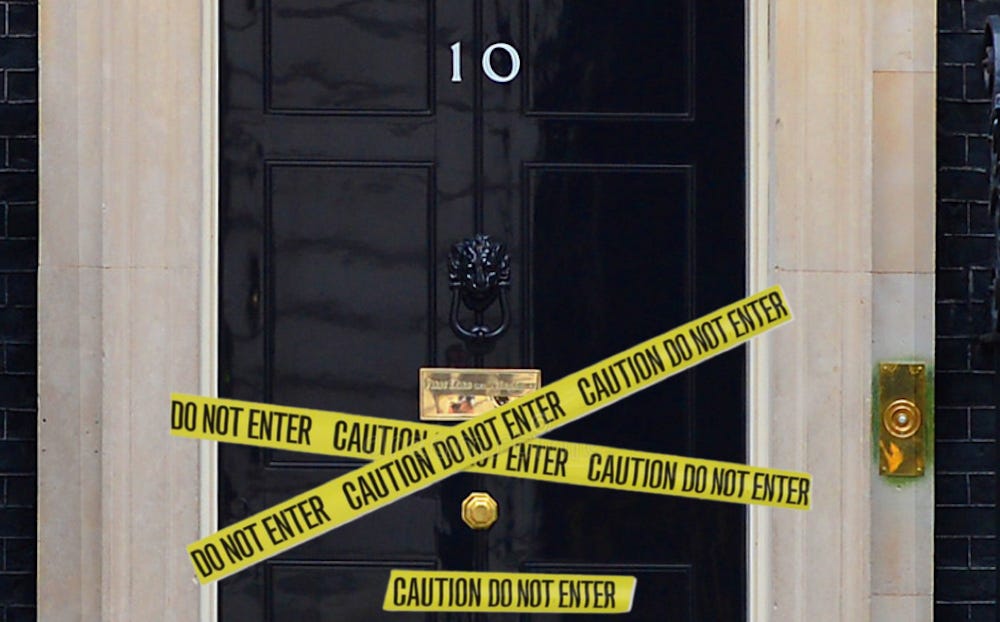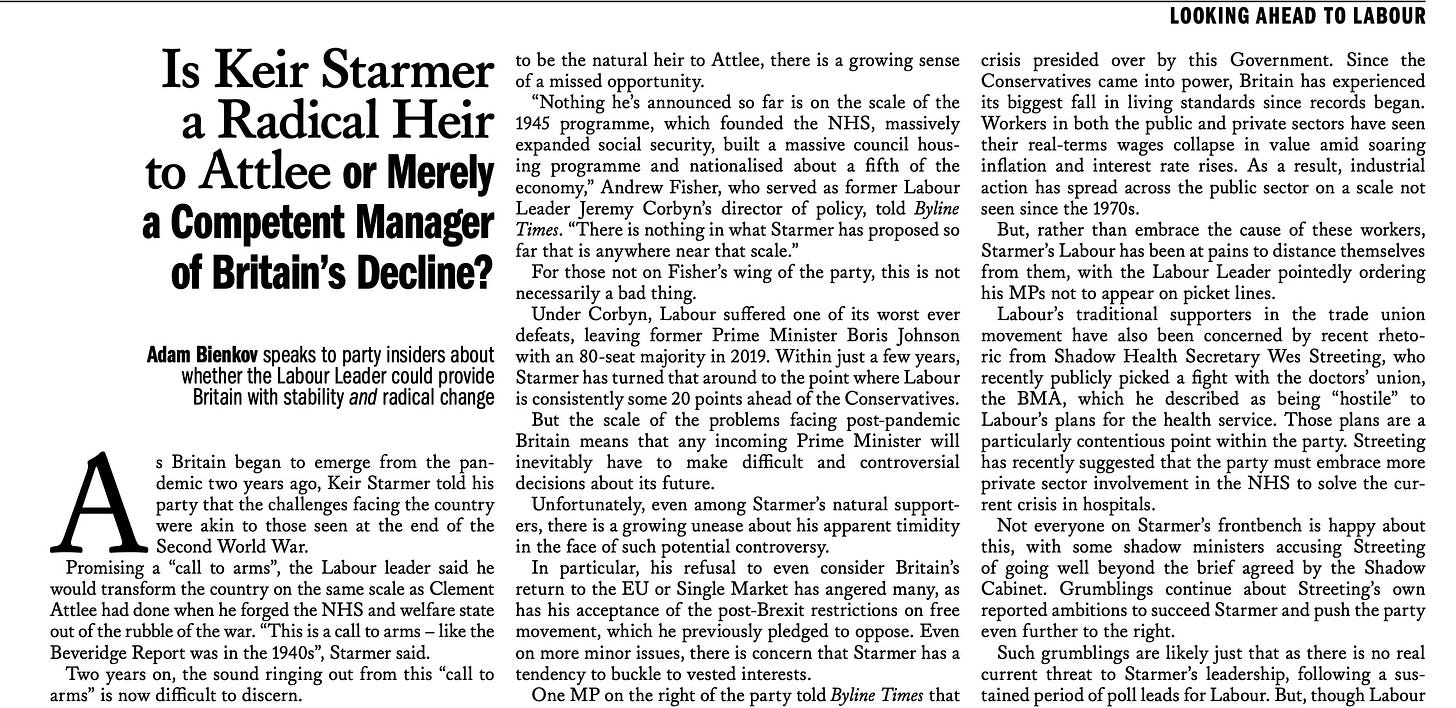Rishi Sunak's Great Accountability Con
As the Conservatives ban the media from their Spring conference, it's clear that Sunak is turning into an even more unaccountable Prime Minister than his predecessors.
When Rishi Sunak first entered Downing Street he promised a new era of “accountability at every level” after the lies and evasions of the Johnson and Truss premierships.
It hasn’t worked out that way.
Even before entering No.10, Sunak began restricting the ways in which he could be held to account; refusing to take part in a single debate or sit-down interview, before being declared Prime Minister last October.
He’s since carried on in the same manner. One of his first acts as PM was to withdraw his ministers from the long-standing daily broadcast rounds. At the time his spokespeople insisted that ministers would only appear in future when “there is something relevant to talk about" or "the public need to hear from government".
Increasingly that has meant us not hearing from the Government at all.
The Home Secretary, who is responsible for what is arguably the most extreme asylum and migration policy the UK has ever seen, instead hid away in the Home Office for months on end, refusing all broadcast interview requests and Urgent Questions in the House of Commons, until finally re-emerging in the safe space of Nigel Farage’s show on GB News.
Last week she re-emerged for only the second time in order to host a publicly-funded PR trip to Rwanda, accompanied by only the most friendly of news outlets, with all others barred from accompanying her.
Meanwhile Sunak himself, who for months resisted calls to release his tax returns as he had originally promised to do before Christmas, finally released what was in reality a carefully edited three-page summary of his tax affairs. Despite his promise for a new era of accountability, the document contained no details of where his money actually comes from, or why he has been allowed to secure an effective tax rate much lower than the vast majority of UK taxpayers.
If this wasn’t quite enough to limit scrutiny of his affairs, Sunak released this flimsy document at the same time that Boris Johnson was in front of the Privileges Committee, amidst one of the biggest news days for months.
Asked whether they had deliberately released it at a time when it would be buried by the accompanying news cycle, his spokesman insisted that it was a sheer coincidence that it just happened to have been finalised by that time.
As they say, if you believe that you will believe anything.
No Entry
If none of this were enough, we now have confirmation that all journalists have been banned from covering the Conservative Party’s Spring conference this weekend.
This event, which for many years has been part of the political-media calendar, will now only be accessible for Conservative Party members and accompanying lobbyists.
Any journalist wishing to cover the event, which includes sessions such as one titled “raising money – how to seal deal with donors” will now be unable to do so, without first gaining entry through subterfuge.
This comes after the party also banned a number of left-leaning outlets from their main conference last autumn, while also charging fees to all those still allowed to come.
Details of this year’s conference have yet to be announced, but I would be wholly unsurprised if further restrictions on that were not imposed as well.
The Accountability Squeeze
As I wrote last week, this all ties into a long-running trend in which successive prime ministers have attempted to restrict access and scrutiny of their actions.
From controlling questions at press conferences, to limiting media appearances, to now banning journalists from events altogether, Sunak and his predecessors appear determined to end whatever limited scrutiny there still remains.
And it’s not just the media who are being restricted, but the broader public too. From new laws restricting strikes, to bans on certain forms of protest, there is no sign that our current Prime Minister is in any way likely to reverse the authoritarian trend his Government has pursued over the past decade.
Of course Sunak has so far benefited by comparison with Johnson’s truly abysmal record of honesty and transparency. The former Prime Minister’s disgraceful appearance before the Privileges Committee this week will only have solidified Sunak’s presence in Downing Street as a result.
Yet rather than installing a new era of “accountability at every level” as he promised, Sunak is rapidly becoming the least accountable Prime Minister of modern times.
Keir Blue Waters
What does Keir Starmer really stand for? That’s the question I ask in my column for the print edition of Byline Times this month.
In the almost three years since becoming Labour leader, Starmer has increasingly backed away from the radical promises he made during his leadership campaign.
Keep reading with a 7-day free trial
Subscribe to Folded with Adam Bienkov to keep reading this post and get 7 days of free access to the full post archives.






